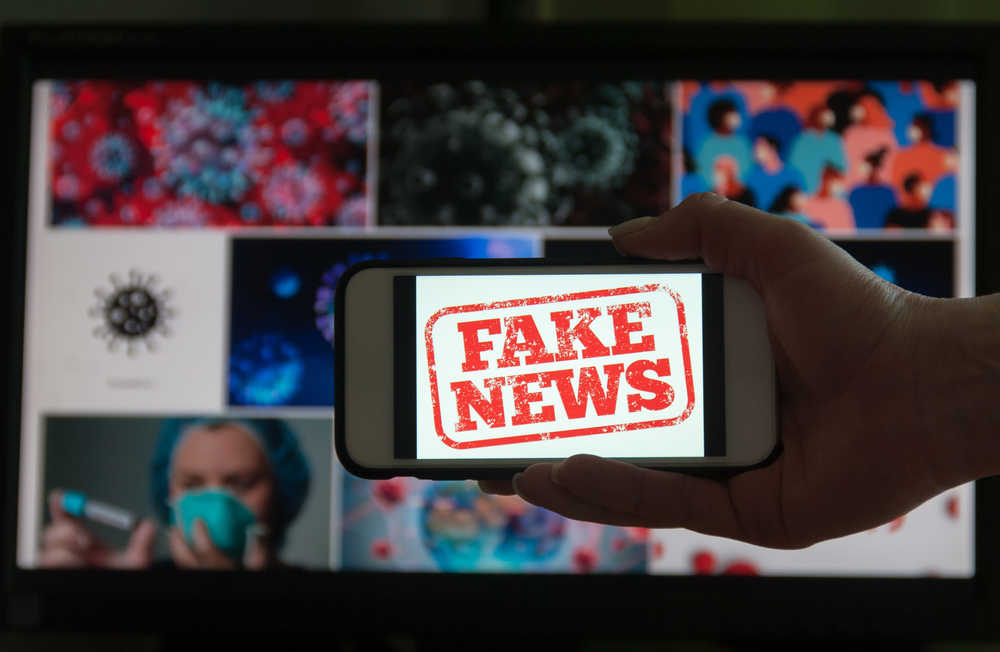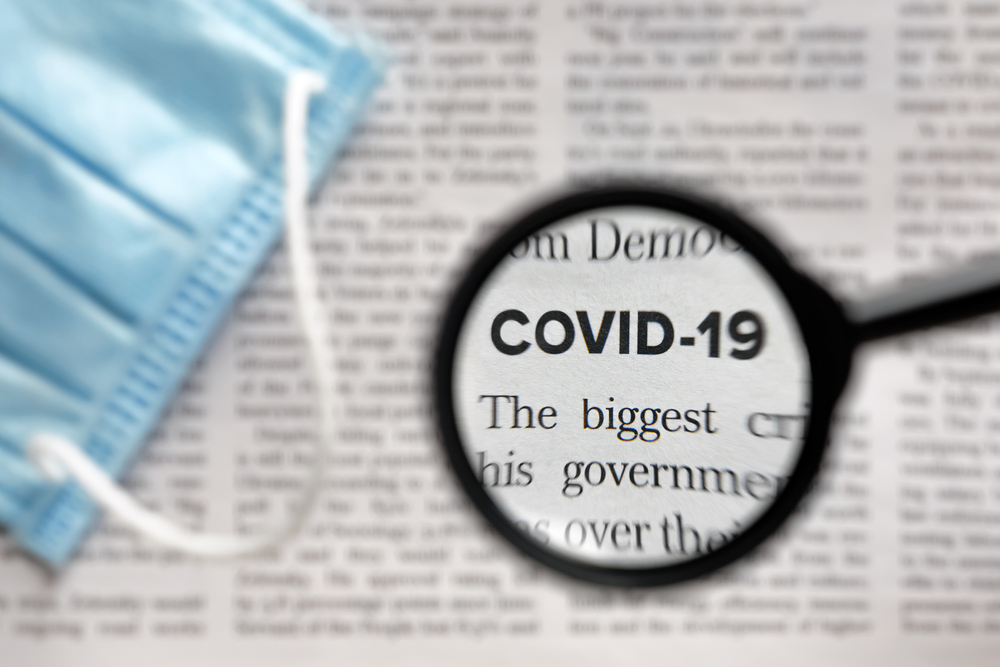 #Essays
#Essays
Contemporary challenges for communication and health
In the virtual world, reliable information now has to compete with the so-called post-truth, pitting scientific knowledge and subjective beliefs against one another
 Denialism, misinformation, and fake news: deceitful discourse has grown in scale, now affecting every dimension of day-to-day life, especially sensitive issues such as health | Image: Shutterstock
Denialism, misinformation, and fake news: deceitful discourse has grown in scale, now affecting every dimension of day-to-day life, especially sensitive issues such as health | Image: Shutterstock
The growth and eventual ubiquity of the internet and social media as a means of influencing feelings has led contemporary society to a situation of communicational chaos, in which establishing what is true and what is false is a constant challenge. The very “politics of truth,” described by French philosopher and historian Paul-Michel Foucault (1926–1984) as the discursive regime used since the fifteenth century to distinguish true from false based on scientific thinking and evidence, are being called into question.
The principle of basing truth on science—and disseminating it through channels legitimized by the expert community, including the press—is no longer hegemonic.
With the emergence of the online world, reliable information subjected to various levels of validation and confirmation now has to compete for attention with a myriad of discursive phenomena—denialism, disinformation and misinformation, fake news, infodemics—all of which have ushered in what is known as the “post-truth” era.
Chosen as 2016’s word of the year, post-truth is an integral part of the strain that has long been placed on the credibility of politics, the media, and science itself. These central institutions of the modern project gave rise to the complex discursive regime that, under a new neoliberal order, allowed for the emergence of information and communication technologies (ICT) and the growth of the internet since the beginning of the twenty-first century.
This socio-technical apparatus pitted two discursive regimes against one another: on one side, truth based on scientific knowledge and disciplinary bodies of knowledge; and on the other, post-truth, based on personal testimony, emotion, belief, and subjective values.
Although rumors are as old as human communication itself, post-truth is a phenomenon of our time, closely linked to digital media, which has established a new way of sharing information, enabling the mass propagation of messages and influences uncontrollably and in real time, whether based on truth (disciplinary) or post-truth (testimonial).
Denialism, misinformation, and fake news
Global in scope, this deceitful discourse has grown in scale, widely affecting every dimension of day-to-day life, especially sensitive issues such as health.
It has imposed unprecedented and complex challenges on health management systems, which now, in addition to facing traditional issues of the disease process, also have to deal with discourse that denies science and deliberately spreads misinformation, such as:
- rejection and disregarding of evidence-based health actions
- defense and promotion of scientifically ineffective or even risky health protocols
- campaigns that seek to defame, abolish, and delegitimize public health policies, programs, and actions
These forms of discourse have the potential to influence the decision-making of individuals and the community at large regarding the care they are willing to accept from healthcare systems and professionals, resulting in new problems or exacerbating existing public health issues.
To give just one example, Brazilian studies have already demonstrated that denialism, misinformation, and fake newsare the leading factors behind COVID-19 vaccine hesitancy. Thus, the conceptual identification of these phenomena is one of the strategies for dealing with them.
In this short essay, I will discuss three of them: denialism, disinformation, and fake news. Classically, denialism is the rejection or denial of the scientific method, emerging contemporaneously as the expression of “an epistemological crisis, which translates into a loss of trust in society’s fundamental institutions, including universities [academia].”
Denialists—who often but not always lack specialist or technical knowledge—appropriate symbols and signs of science to elect new epistemic authorities, inventing skills that confer some form of status in the public arena, often in pursuit of political or financial gain.
By subverting the recognition and authority of science, they create their own authorities, constructing a discourse around pseudoscientific rhetorical arguments that give the appearance of legitimate debate where it does not actually exist.
As a rule, denialist discourse is used against a consensus or overwhelming evidence by people who have few or no facts to support their point of view, employing a set of tactics that aim to cause discursive impacts in the short term.
The following three tactics demonstrate how they can affect the field of medicine.
The first is selectivity, when data is cherrypicked and taken out of context to suggest that scientific findings are wrong. Selective denialists take advantage of the fact that knowledge is always provisional to support their arguments using single articles with weak or already disproven evidence.
An emblematic example: the article that suggested an association between the MMR vaccine and autism, published in the prestigious journal The Lancet in 1998.
It was later discovered that the methodologically flawed study was also ethically reprehensible—its author made contact with the 12 participants through a lawyer who had also raised funds for research he led on the MMR vaccine!
It was only in 2010, more than a decade later, that the journal removed the article from its databases after the doctor’s medical license was revoked by the British Medical Council. Despite having been retracted, the paper is still cited exhaustively by proponents of the anti-vaccine movement.

Another tactic is the citing of fake experts or dubious science. Many denialists have academic training and use their credentials to support theories with no scientific support.
In Brazil, especially at the beginning of the COVID-19 pandemic when the scientific community was still deeply uncertain about the present and the future, many doctors without any experience in epidemiology, virology, or infectology—important fields during epidemic events—presented themselves as experts on social media and, incredibly, in the general press.
Fake experts also spread accusations that discredit the work of serious scientists.
This is what happened to the renowned American epidemiologist Stanton Glantz, from the University of California, San Francisco, who, after exposing the strategies used by the tobacco industry to get people addicted, has been a frequent target of defamation by critics who identified him as the ringleader of “a gang of fraudsters [epidemiologists],” and epidemiology as “junk science.”
The third tactic is conspiracy, which preaches that science is not the result of a consensus among peers based on scientific evidence, but rather of their involvement in a complex and secret conspiracy.
In the early days of the pandemic in 2020, conspiracists flooded social media with the theory that the SARS-CoV-2 virus was produced in a lab by the communist Chinese government to destroy the capitalist West.
Disinformation is a term used to describe deliberate (and often orchestrated) attempts to confuse or manipulate people by producing and spreading dishonest information.
It is closely linked to misinformation, which also encompasses the sharing of false, misleading, or incorrect information, but without any intention to cause harm.
Stories that impact healthcare systems
Fake news is defined as a piece of disinformation purposefully created and disseminated with the intention of causing harm and influencing people, the main characteristic of which is to simulate a discursive structure and documentary and journalistic formats.
It is perhaps best-known for its use for political and ideological gain through a multitude of texts and contexts.
These false, often sensationalist stories, created to be shared widely online and to generate advertising revenue through internet traffic, generally aim to discredit public figures and political and social movements and to sabotage companies.
No matter how absurd or laughable they may seem,the texts are never innocent, casual, or inconsequential. They have potentially serious consequences for society.
With respect to COVID-19, Brazilian and international studies have demonstrated how fake news impacted healthcare systems, exacerbating problems with overloading and organization, ultimately contributing to the deaths of many people.
Thus, what is at stake with these phenomena, in general and for the health sector in particular, is the line between trust and distrust in politics, science, and the State, leaning towards a personally and intimately constructed experience.
Due to the potential risk to the health and lives of people and populations, it is imperative that we do all we can to tackle them.
Claudia Malinverni has a degree in social communication and a master’s degree and a doctorate in science from the School of Public Health at the University of São Paulo (USP). She is director of the SUS-SP Research and Development Center and head of the Postgraduate Program in Public Health at the São Paulo State Health Department’s Institute of Health.
Opinion articles do not necessarily reflect the views of Science Arena or Hospital Israelita Albert Einstein.
*
This article may be republished online under the CC-BY-NC-ND Creative Commons license.
The text must not be edited and the author(s) and source (Science Arena) must be credited.


